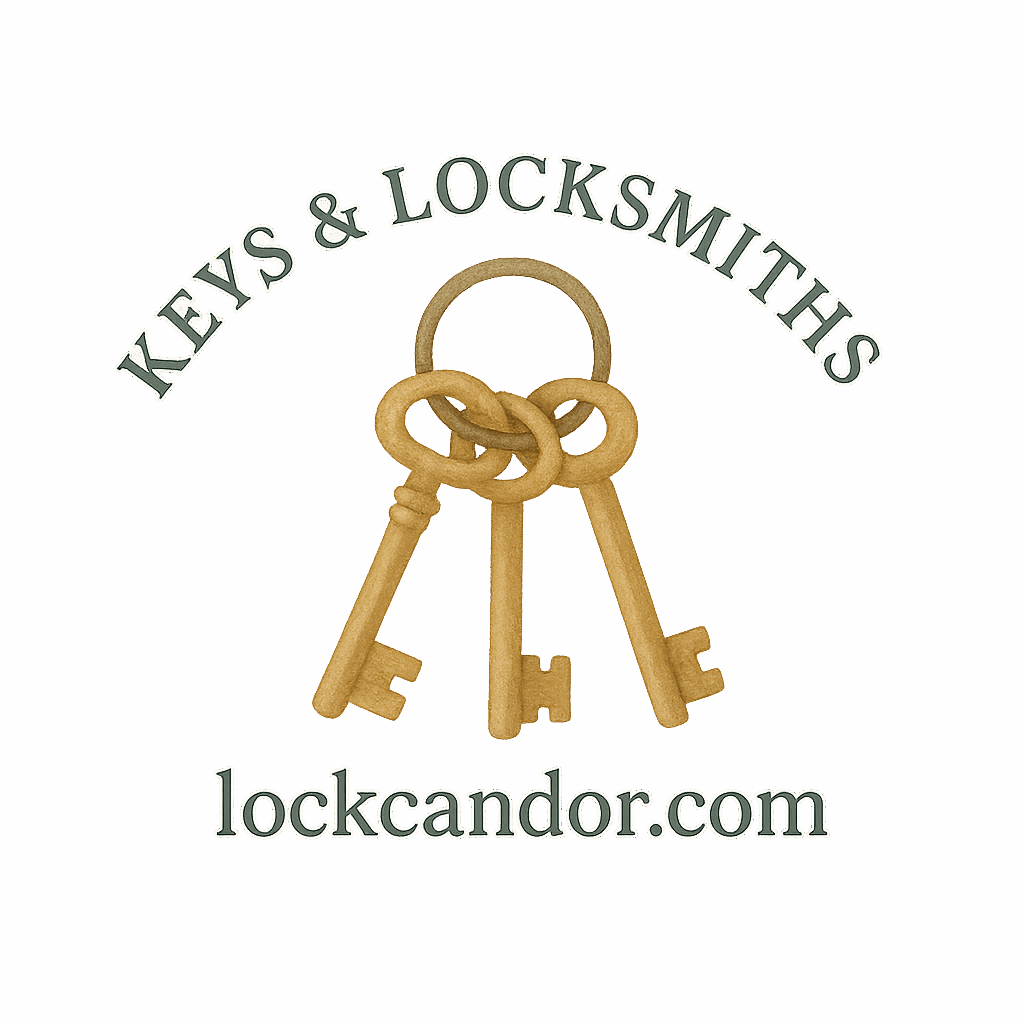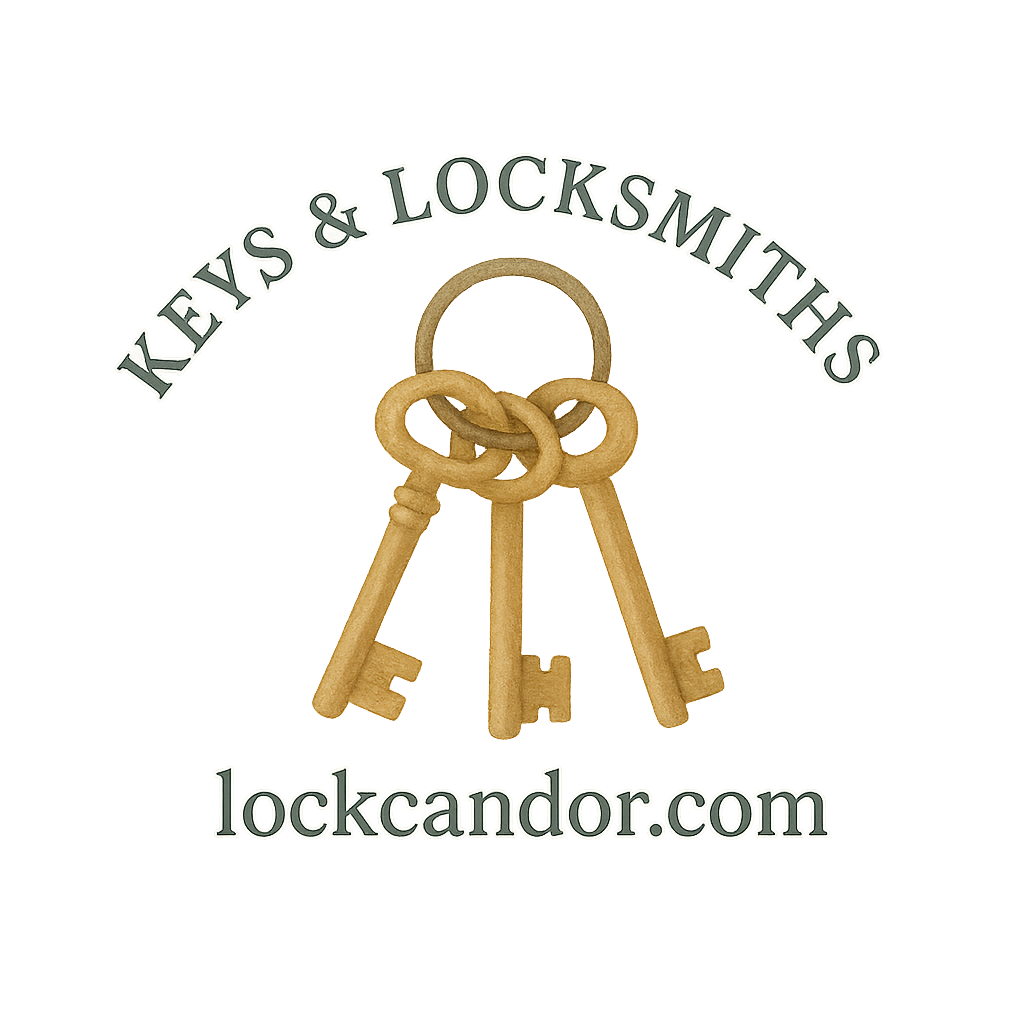Introduction
Ever tried to open a business lock with your house key? Spoiler alert—it doesn’t work. That’s because residential and commercial locks are built differently, and for good reasons. Whether you’re a homeowner or a business owner, understanding the key differences between residential and commercial locks is essential for securing your property the smart way.
So, what exactly sets them apart? Let’s dig into the 7 key differences between residential and commercial locks and why choosing the right one matters more than you think.
1. Purpose and Application
Residential Locks: Comfort and Convenience
Home locks are all about providing comfort, privacy, and basic security. Think about it—you want to keep your family safe, but you also want to enter your home easily after a long day. That’s why most residential locks prioritize ease of use and aesthetics over industrial strength.
Explore more on home locks and residential security and how to make your home safer without breaking the bank.
Commercial Locks: Security for Business Assets
Now flip the switch. Commercial locks are built to protect valuable assets, sensitive data, and heavy traffic areas. These locks are engineered with one thing in mind—security. They’re usually part of a broader commercial high-security system designed to deter intruders and control access precisely.
2. Lock Strength and Durability
Residential Locks: Light to Moderate Use
Let’s be real—your front door lock doesn’t get opened 300 times a day. Residential locks are made for less wear and tear. They’re often made of lighter materials and designed to last years under standard usage.
Check out the best options for home security locks on the LockCandor tag page.
Commercial Locks: Built for Heavy Traffic
Imagine hundreds of employees entering and exiting your office daily. Commercial locks can withstand that kind of abuse. Made with hardened steel, commercial-grade locks offer enhanced durability and often meet ANSI Grade 1 standards—the highest available for locks.
For expert advice, head over to our business security tips section.
3. Lock Mechanisms and Complexity
Simpler Mechanisms for Homes
Home locks often use basic pin tumbler or deadbolt systems. These are effective for residential use but can be vulnerable to bumping or picking if you’re not using high-quality locks.
Need help with lock issues at home? Visit our page on lock repair and maintenance to keep things smooth and secure.

High-Security Mechanisms in Commercial Settings
Commercial locks, on the other hand, often use restricted keyways, biometric systems, or electronic keypads. These added layers of complexity provide higher protection against unauthorized access.
Dive deeper into commercial lock options for your business needs.
4. Compliance and Regulations
Home Locks: Less Legal Scrutiny
When you’re buying a lock for your front door, there are hardly any legal requirements. It’s mostly about personal preference and neighborhood standards.
Still, it’s smart to invest in well-rated home locks for better safety.
Business Locks Must Meet Industry Standards
Commercial buildings are subject to local building codes, fire safety regulations, and ADA compliance. That means the locks used in businesses must adhere to specific standards, especially when lives and property are at stake.
Check out our emergency locksmith solutions that comply with all commercial safety guidelines.
5. Access Control Features
Residential Use: Basic Access Control
Most home locks rely on traditional keys or smart locks connected to smartphones. That’s usually enough to manage access for family and friends.
Want smart features? Explore options from our best door locks recommendations.
Commercial Use: Advanced Access Control Systems
For businesses, it’s a whole different game. Card readers, keypads, biometric scanners, and even cloud-based systems are common. These allow businesses to monitor entry points, track activity, and even revoke access remotely.
Find tips and trends on lock systems tailored to business use.
6. Cost and Installation Differences
Affordable Residential Installations
Most homeowners can install a basic lock themselves or hire a locksmith for a modest fee. Residential locks are cost-effective and widely available.
Don’t miss our locksmith tips for budget-friendly installations.
Commercial Locks Come with Higher Costs
Commercial locks are more expensive—not just the hardware but also the labor, due to their complexity. You often need professional help for installing access systems or integrating them with existing security setups.
Take a look at our guide to automotive and commercial solutions.
7. Maintenance and Repair Needs
Home Locks Require Occasional Servicing
Residential locks can go years without needing much attention, but it’s still important to perform basic car lock maintenance and routine checks.
Stuck or worn locks? We’ve got tips on fixing locks the easy way.
Commercial Locks Demand Routine Maintenance
Business locks require scheduled maintenance, especially for electronic systems. Neglecting this can result in system failure or security breaches.
For more, see our detailed section on lock problems that commercial property owners often face.
Why Choosing the Right Lock Matters
Choosing the wrong lock can be like using a toy padlock on Fort Knox—or vice versa. Residential and commercial spaces have vastly different security needs, and the locks should reflect that. If you own both a home and a business, consider consulting an expert for a customized security solution.
Visit LockCandor for more expert advice and solutions tailored to your specific needs.
Final Thoughts
So, what did we learn? While residential and commercial locks may look similar at first glance, their differences run deep. From purpose and durability to compliance and cost, these locks serve very different roles. Whether you’re securing your home sweet home or protecting your business empire, understanding the 7 key differences between residential and commercial locks can save you time, money, and headaches down the line.
Explore more on:
FAQs
Q1: Can I use a commercial lock on my home door?
A: Technically, yes—but it may be overkill. Commercial locks are bulkier, more expensive, and designed for heavy use. They’re better suited for businesses.
Q2: What is the strongest lock type for homes?
A: Deadbolt locks, especially ANSI Grade 1 models, are considered the most secure for residential use.
Q3: Are electronic locks better than traditional ones for businesses?
A: Yes, especially when you need access control and logging features. Electronic locks offer convenience and higher security.
Q4: How often should I maintain my commercial locks?
A: At least every 6–12 months. Regular lock repair and maintenance helps prevent malfunctions.
Q5: Can the same locksmith handle both residential and commercial locks?
A: Absolutely! But make sure they have experience with both types. Check our auto locksmith tips for multi-functional services.
Q6: What should I do if I’m locked out of my home or office?
A: Contact a pro right away. Check out our home lockout solutions for fast help.
Q7: Where can I learn more about different lock options?
A: Dive into our lock options tag page for in-depth guides and comparisons.


